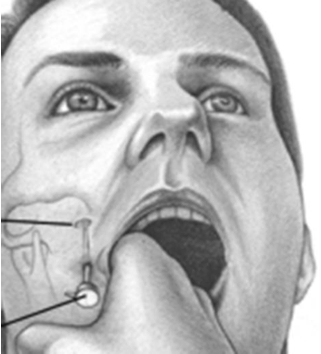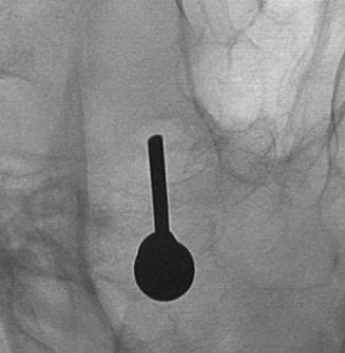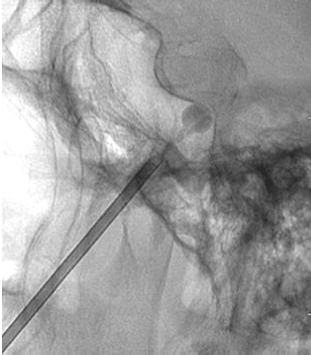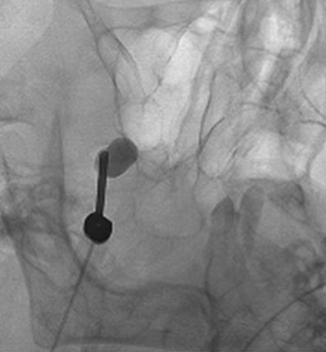Percutaneous Rhizotomy
For more information, please visit our Comprehensive Facial Pain/Trigeminal Neuralgia Program site
What is it?
The surgical disruption of the trigeminal nerve root as a means of limiting pain.
What is its goal?
The purpose of this procedure is to compress the trigeminal nerve to disrupt the pathway that causes the pain.
How is it done?
The procedure is done under general anesthesia. Under x-ray control, a needle is introduced through your cheek into the trigeminal nerve, using an opening in your skull called the foramen ovale.


A balloon is expanded and compresses the nerve. You are asleep when this happens.


How long will I stay in the hospital?
After surgery, you will be taken to the post anesthesia care unit and then to the same day surgery unit. Some people need to stay over night, but most go home that evening.
Going home
You will have a band-aid on your cheek. Most people have rapid relief of their pain. You should also expect facial numbness, which slowly improves but may be permanent.
About 90-95% of patients will find that their facial pain disappears immediately after the balloon procedure, although for some patients it may take a day or so for the pain to go away completely. The pain-free period varies from person to person, but half the people will still be pain free after 5-8 years. This procedure can be repeated if necessary.
Most patients will experience some degree of facial numbness post operatively. This will decrease over time. The numbness indicates the nerve has been successfully damaged to prevent trigeminal neuralgia pain from reaching the brain, which is the aim of the surgery. Some patients may also experience weakness in the chewing muscles after the surgery, although this is usually temporary and will resolve over the first few weeks.
What are the risks?
There are always risks with any surgery. A small percentage of patients (up to 5%) may experience complications. These include meningitis, difficulty chewing, a cheek hematoma, double vision, loss of the corneal reflex, anesthesia dolorosa, a sudden rise or drop in blood pressure, cerebrospinal fluid leaks and meningitis, and an outbreak of cold sores.